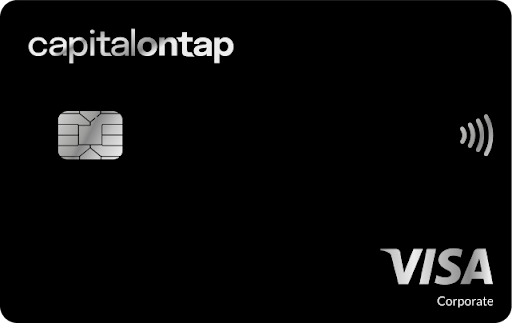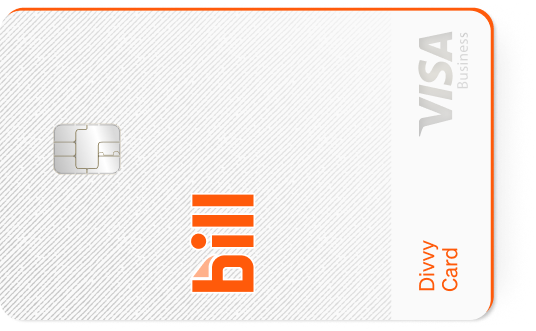If you run a nonprofit that doesn’t rely on fundraising, you may be looking for a solution to your business financing needs. Is your nonprofit eligible for a business loan? Where should you look? What kind of terms and rates do you qualify for?
What to know about business loans for nonprofits
Nonprofit organizations are notorious for facing a mountain of financial struggles. Many use fundraising and apply for grants to get the capital they need to boost cash flow and cover expenses.
But because these funds are limited (and sometimes dry up completely during bad economic times), nonprofits may look for other sources of financing like business loans. The issue is that these can sometimes be difficult to get approved for. Nonprofits, unlike for-profit businesses, don’t sell products or services for profit, and so they are often seen as risky investments for lenders since they may not have steady money coming in to repay the loan. The loans that are available may have strict criteria to qualify for.
Top financing options for nonprofits
That being said, nonprofits do have options when it comes to small business financing. It’s all a matter of looking in the right place. Here are a few options to explore.
Term loans
Nonprofit organizations may qualify for small business loans, which are offered by banks, credit unions, and online lenders. Banks tend to offer long-term loans with low interest rates to borrowers who qualify.
Online lenders may have less strict criteria to qualify for long or short-term loans, though they may charge higher interest rates for working capital loans. Start your search with these lenders:
- Kiva
- Nonprofit Finance Fund
- OnDeck
- Credibly
Term Loan by OnDeck
This is a great option for businesses with consistent revenue, seeking competitive pricing working capital products. OD is known in the industry for their transparency and speed to fund. OD is the largest online lending company, which provides confidence to users with finding the right long-term partner to help fuel their company's growth.
Pros
- One application, two paths to finance your business - applicants are reviewed for both a Term Loan and Line of Credit
- Minimal paperwork
- Fast approval time
- Transparent pricing
- “White Glove” customer service
- Access to multiple lending options.
Cons
- Need a minimum of 1 yr time in business
- $250,000 maximum loan amount
- Not available in all states.
Funding Amount
Cost
Repayment Terms
Funding Speed
Lines of credit
If your nonprofit needs some cash now and the rest later, consider a business line of credit, which gets you approved for access to cash. Borrow what you need and pay it back, and you can continue to borrow from the line over time.
- Financing Solutions
- American Express® Business Line of Credit
- Fundbox
Line of Credit by Fundbox
Nav recommends this product as a great solution for newer small businesses looking for a fast application process and access to a flexible LOC product. Bonus: When you click 'Apply now," we'll securely pass over your info, making applying with Fundbox a breeze. Only answer a few additional questions on their end and you're good to go.
Pros
- 625 minimum personal credit score
- No impact to credit score to apply (soft pull only)
- No draw fees
- Fast approval and funding, with funds available as soon as the next business day
- Use as much as you need, only pay interest on what you use
- Fundbox reports payment activity to all the major commercial credit bureaus via the Small Business Financial Exchange (SBFE), which can help strengthen a business's credit profile.
Cons
- Must have a business checking account with a minimum balance of $500
- May require large weekly payments (0.4% - 0.7% of the original draw amount per week) due to the short repayment duration.
Funding Amount
Cost
Repayment Terms
Funding Speed
Commercial real estate loans
If your nonprofit wants to purchase commercial real estate, maybe for an office or event space, there are business loans specifically for this purpose. The property you buy acts as collateral for the loan.
- Lendonate
- Bridgeway Capital
- SmartBiz
Business credit cards
Having access to business credit cards ensures that your nonprofit can always purchase the office supplies, printer cartridges, and other items it needs to thrive. Look for a credit card that offers rewards so you can earn for what you spend.
Intro APR
Purchase APR
Annual Fee
Welcome Offer
BILL Divvy Corporate Card
Eligibility based more on revenue, requires full repayments monthly.
Pros
- Free and flexible expense management platform
- No annual fee.
Cons
- No early spend bonus and lower rewards than other cards
- Must pay off all balances in full each month.
Intro APR
Purchase APR
Annual Fee
Welcome Offer
Community development financial institutions
CDFIs are lenders and banks that support economic growth in underserved, low-income communities. If your nonprofit operates in such a community, you may qualify for low-interest loans through a CDFI. Find a CDFI in your area.
Grants
Another source of funding for nonprofit organizations comes from grants. There are corporate, nonprofit, and government grants that your organization may qualify for. Some are available to any business, while others focus specifically on certain industries.
Access better funding options with a solution you can’t get anywhere else
Reduce the pain in financing with streamlined applications, instant offers and approval rates that are 3.5X higher than industry averages.
How to qualify for business loans as a nonprofit
Review the requirements to qualify for a business loan before applying, because some are not open to nonprofits. Those that are may have specific requirements when it comes to personal and/or business credit scores, time in business, and annual revenues. Startup nonprofits may have difficulty qualifying for a loan through a bank or the SBA, since they generally want you to be in operation for at least two years.
The loan funds you are eligible to receive may depend on your qualifications. The better your qualifications, the more you may be able to borrow.
Many lenders look at your credit scores to determine how much of a risk it is to loan money to your nonprofit. The lower your scores, the greater the risk, in their eyes. If you haven’t reviewed them, see where your scores stand so you know what you will qualify for. You may need to shop around for a lender who has lower requirements for credit scores.
Things to consider when choosing financing for a nonprofit
Nonprofit business loans all have different loan applications and eligibility requirements to qualify, so spend some time researching all the loan programs you’re interested in. Make a list of those you qualify for, then find out what’s required to apply.
You may be asked to provide tax returns, financial statements, and proof of your 501c3 status. You may also be required to provide collateral for a loan. This reduces the risk for the lender because, if your nonprofit is unable to repay the loan, the lender can take the collateral to cover what you owe. Additionally, you may be asked for personal guarantees for business loans. This is standard practice: if your nonprofit can’t pay the loan, you personally will be held responsible for the debt.
One more tip: only borrow what you can afford to pay back. A common mistake with small business owners and nonprofit owners is biting off more than they can chew. If your monthly repayment amount exceeds your budget, you’ll quickly default on the loan.
Applying for a loan for a nonprofit
Each loan application process will be different, but generally, you can expect to be asked to provide details about your nonprofit, including its location, industry, and revenues. You may be asked to provide proof of your 501c3 status and any business licenses you might hold, as well as tax returns and financial statements.
Once you apply, it may take weeks for you to get a response if you apply for a loan through a bank. If you apply online, you may get an instant response. Once you are approved, sign the loan agreement, which lists your repayment terms and interest rate. Once that is processed, funds will be deposited into your nonprofit’s business bank account.
Can a nonprofit get an SBA loan?
The Small Business Administration guarantees low-interest loans for businesses, but unfortunately, its SBA loan options do not extend to nonprofit organizations.
Nav’s verdict: Business loans for nonprofits
If your nonprofit organization needs money and isn’t finding it through fundraising, you do have funding options to explore. Know how much you need and what you want to spend it on before applying for a loan.
Let’s find the right loan for your business
Nav serves nearly every kind of business, and our experts will match you to the right fit for your business needs.
Build your foundation with Nav Prime
Options for new businesses are often limited. The first years focus on building your profile and progressing.

Susan Guillory
Susan Guillory is an intuitive business coach and content magic maker. She’s written several business books and has been published on sites including Forbes, AllBusiness, and SoFi. She writes about business and personal credit, financial strategies, loans, and credit cards.




